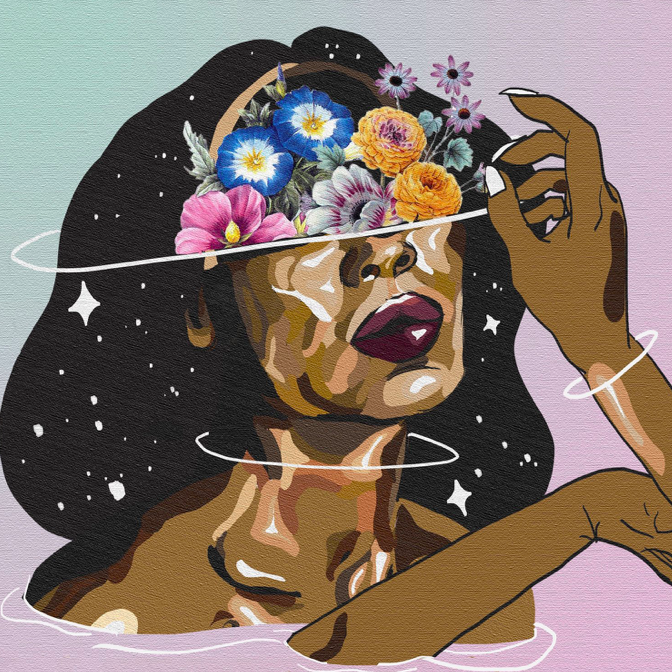TW: The following article discusses trauma and violence against Black women. This might be distressing to some of our readers, so feel free to exit this piece and read some of the other work we’ve got.
Violence is something that is racial and gendered. We are all taught to mourn and grieve everyone "equally" and not make death "political" but unfortunately, some people are not equal, and their lives (much like their deaths) are inherently political. The Center for Disease Control's research finds that Black women die by homicide at nearly three times the rate that white women do. That fact alone should be cause for concern. When it comes to the conversational challenge that we face when addressing the danger Black women are constantly in, the problem lies within performative feminism and in (what I hope is) well-intentioned superficial actions on behalf of said women.
"We're all women!" or "Women of color!" are just part of the language that simply gets in the way of coming to an intelligent thesis on Black women's suffering. When white supremacists go out and murder Black women, they are doing it based off of specificity. In order to fully protect Black women, we should fight with the same specificity. Reading this may be distressing for some, but there are points to make here in order to stop other girls and women from suffering the same fate as Nia Wilson. The first point has to do with the police state and its relationship with the girls and women in the Black community.
After Wilson's killing, many members of her family and the Black community on social media expressed their suspicion with justice ever being served on her behalf. Reports show that institutions perceive Black women who are missing and murdered as unworthy of public interest. They are not the right kind of "victim"- white women and girls who are conventionally attractive and upper middle class. These kinds of victims (whose suffering is legitimate) are innocent, but Nia Wilson, a Bay-Area Black girl who wished to be a rapper, and girls like her, are not. This kind of systemic ill is what happens when the justice system decides who is "criminal" and who is "victim" before a case is even brought before it. The sheer fact that unarmed Black men are harassed by uniformed officers and by white folks who take it upon themselves to use 911 as a personal complaint hotline, but Wilson's murderer was able to roam free on the subway system until finally apprehended by the police speaks volumes. The glaring disinterest in serving and protecting Black communities ties into the way Black transgender women are treated. They are missing and murdered at a disproportionate rate and have a heartbreaking life expectancy.
The second point has to do with the language within our activism. Black women deserve to be fought for when they are still here. If the only time you worry about the well-being of Black girls is when they are murdered, you are part of the problem. If you only care about Black trans women when they are missing and/or killed, then you don't truly care at all. Nia Wilson wanted to be a musician, she had a job interview coming up the week she was murdered, she was a young girl with dreams just like the rest of us. She loved and was loved. And she was unjustly taken away for one reason and one reason only: the color of her skin. The sad part is, her murder likely wasn't the first time she was mistreated by someone with a racial bias against her. So why did it take her death for people to finally call out the toxic overlap between racism and violence?
You can seek justice in the name of their deaths, but fighting for their lives is imperative. The action you take when people like Nia Wilson are still alive to reap the benefits weighs much more than post-death sympathy. These women's lives matter enough for you to fight for them before they experience the fatal result of no one speaking up when it mattered most.
Artwork by GLDENG6RL

